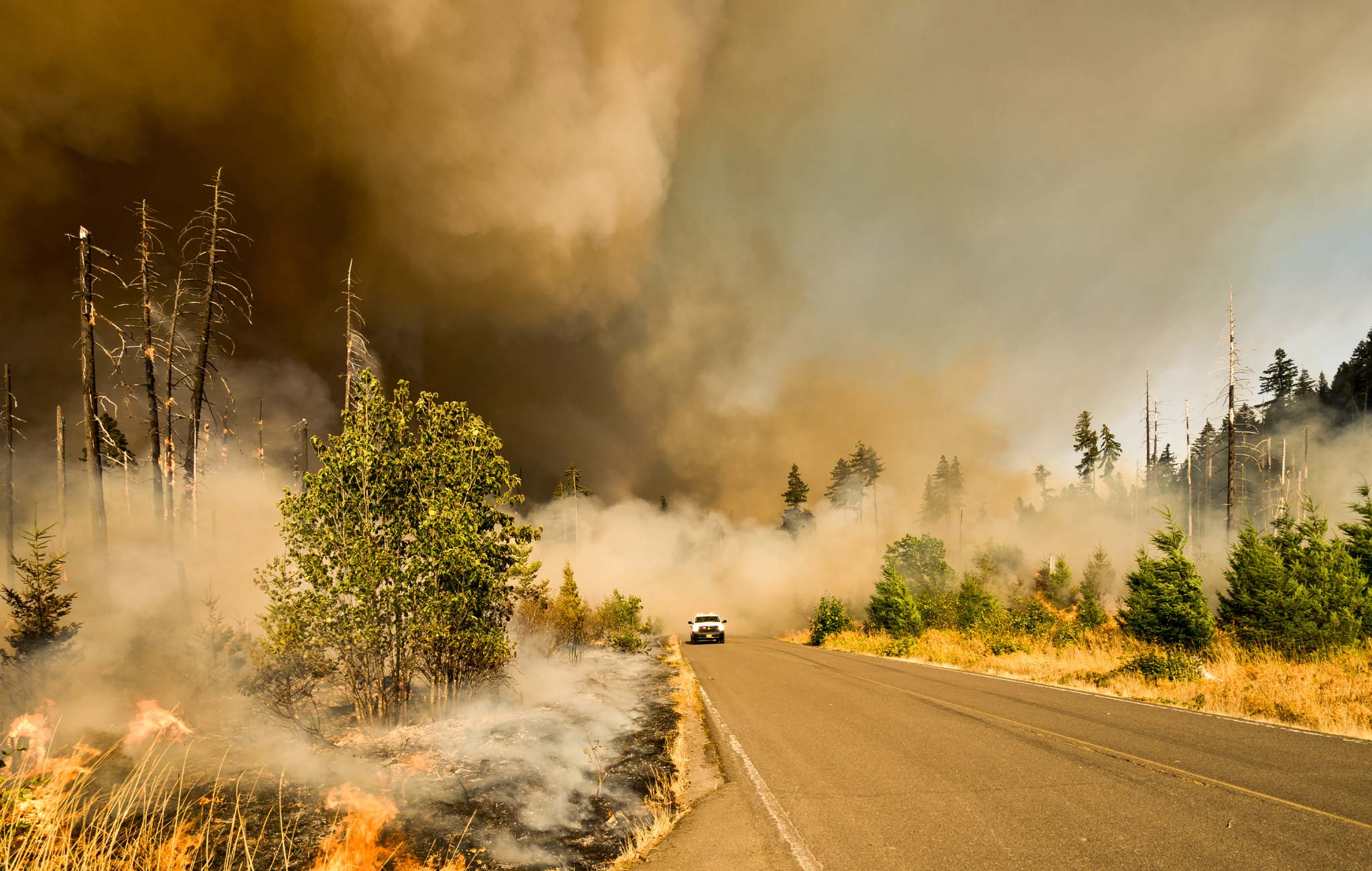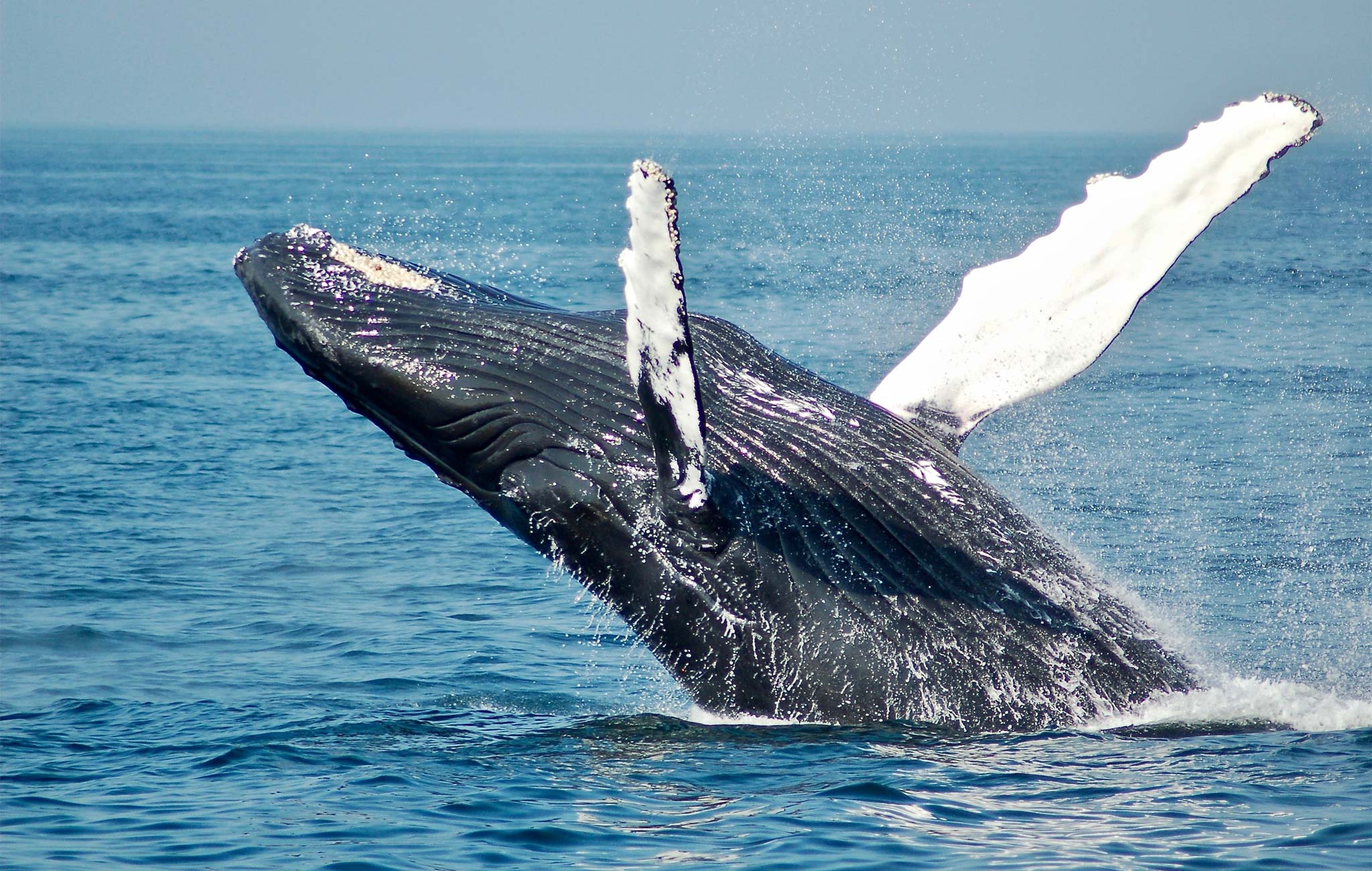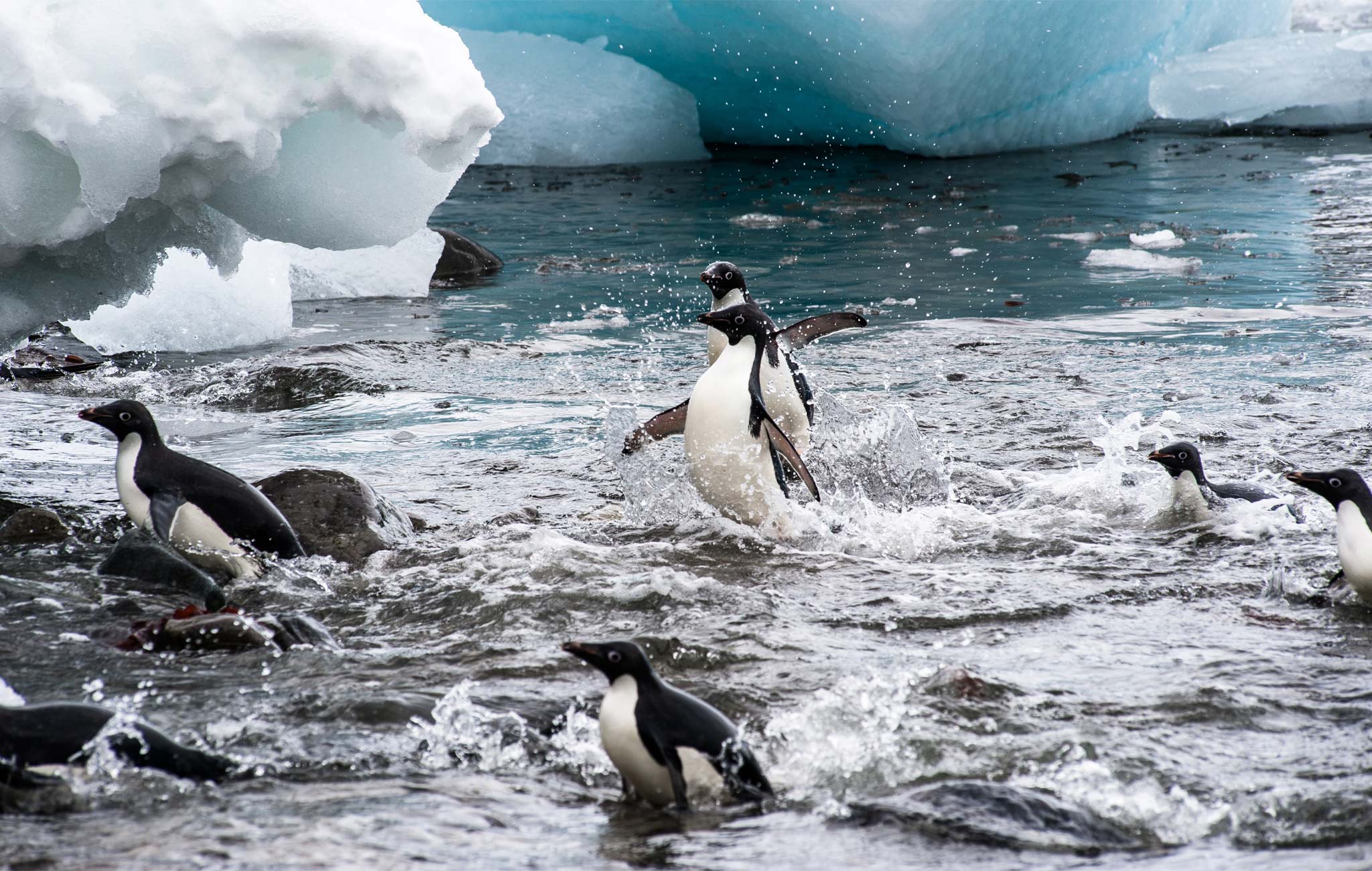Amongst the deluge of climate worries we have been faced with this past year, it can often seem like there is no sign of good news on the horizon. With the ocean facing problems with pollution all over the globe, and extreme weather events leaving disruption in their wake, surely there are some signs of positive progress to report? And there is!
The ocean is a vibrant, self-sustaining ecosystem with the potential to regenerate. When marine areas and ocean-based activities are properly governed and protected, the ocean really can show signs of revitalisation and recovery. We are seeing renewed efforts to protect endangered species, innovations in the way we go about extracting seafood for human consumption, new regulations introduced to reduce plastics and more. And this is only the beginning. The ocean is one of our biggest allies for mitigating the climate crisis, and it's time its protection takes centre stage on the global agenda.
Potential Problem #1 - Dealing With the Fallout

As the frequency and seriousness of wildfires increase along with climate change, we are seeing devastating blazes tear across countries, states and even coastlines. Since 2017, we have witnessed unusually intense wildfires flare up across Brazil, Portugal, Russia, Australia and the Pacific Coast of North America to name but a few (1) - with the largest fire in California’s state history occurring in August 2020, with more than 1 million acres being destroyed in a single blaze (2). To bring this into perspective, six of the seven largest wildfires in Californian history have occurred since 2020 (2). As these devastating wildfires become ever more common occurrences, how are they connected to the health of our oceans? Apart from threatening human lives, releasing carbon dioxide, disrupting livelihoods and destroying large areas of landscape, the greenhouse gas emissions they produce dramatically affect our oceans.
We know there is no smoke without a fire, but what effect does this smoke really have on our planet? Apart from cloaking whole towns in clouds of ash, wildfires also release large amounts of dangerous chemicals and tiny polluting particles. These particles can contain huge amounts of the chemicals nitrogen, phosphorus and metals, including copper, iron and lead (1). Emissions like these are problematic, as they are carried far and wide by wind and rain, often being transported directly into our oceans - where the particles can disrupt the delicate chemical balance of our oceans. For example, Australian wildfires were the trigger to huge amounts of algae appearing in the Southern Ocean, a serious marine problem that stops sufficient oxygen from reaching the ocean, leading to the suffocation and death of many types of marine life. These fiery disruptions have also been found to stunt the growth of corals, even damaging them beyond the point of recovery(3).
Positive Ocean News#1- Humpback Whales are No Longer Endangered!

According to Australian officials, humpback whales are no longer listed as endangered species! Ever since the Australian government passed its anti-whaling policy in 1979, there have been as many as 40,000 individual humpback whales recorded and spotted in the oceans. This is a huge leap forward from the worst part of their history when during the height of the commercial whaling industry, there were only around 1500 humpback whales known to still be surviving in the wild.
Potential Problem #2 - Dark Matter
With more extreme storms happening ever more frequently, increased industrial development, seabed trawling, combined with the large amounts of ice melting in the Arctic, we are seeing an increasing amount of soil and sediments being mixed into our oceans. This causes the water to darken, which makes it much harder for sunlight to reach below the surface. This can change the chemistry of the ocean and can make it difficult for marine creatures that depend on light to live. Although some small benefits have been found - where the darkened water can stop some of the aspects of coral bleaching (4) - a problem we are facing around the world, where the temperature and chemistry of the oceans are not safe for corals to grow. This problem is predicted to have a large effect on marine species and is likely to damage their coastal homes.
Positive Ocean News #2- California Reduces Microplastics

California has made history, by being the first US state to launch an all-encompassing microplastic reduction policy, in response to the growing global plastic pollution problem. The state is working on plans to completely eliminate microplastics from entering ocean waters, in multi-faceted plans to tackle the issue. As part of their strategy, the California government’s ‘Ocean Protection Council’ plans to better educate the public and production industries about where microplastics come from, their effects on the environment and solutions to avoid them in the first place.
This move is one of many that California is taking to combat the problem of plastic pollution. Other steps the state has taken include banning single-use plastic bags, and outlawing the use of microplastic beads in commercial products.
Potential Problem #3 - Poles Apart

Climate change is causing the ocean to heat up, forcing marine creatures to move towards the North and South poles in search of cooler waters. As these warmer zones of water shift poleward, species are moving with them to survive, with these movements of species happening five times faster than on land (5). In mid to high latitudes, marine creatures can migrate to fill the spaces left behind, however many of the hottest zones are already pushing the limits for heat-tolerant species. This heating is therefore reducing the biodiversity and amount of life in these warmer ocean zones, with many fewer marine creatures than we used to see. Although it is not yet clear what the long-term effects of these changes will be, it is highly likely that these tropical zones will struggle to support both human livelihoods and marine creatures as these changes increase (1).
Positive Ocean News #3 - Indigenous Group Saves Our Sea Turtles

The Gulf of Mexico is home to many types of endangered marine species, including sea turtles. The ‘Grupo Tortuguero Comcáac’ - or the ‘Sea Turtle Group’ - formed by the indigenous Comcáac people is fighting to grow the population of sea turtles in the area. The group is located in El Desemboque de los Seris, an area in the Gulf of Mexico. The sea turtle is considered sacred to the Comcáac people, and they have worked over the past 5 years to release over 8000 sea turtle hatchlings along the local beaches. Due to their conservation efforts, the Olive Ridley species of sea turtle is now no longer considered endangered thanks to the work of the community.
With these examples of recovery and positive progress in mind, it is clear to see that with sustained work, effort and care, our oceans can recover from the damages they have sustained. With the right policies in place, we can allow our marine creatures to flourish and repopulate. We can minimise the plastic waste leaking into our oceans. We can sustain our communities of endangered sea creatures, and maybe even bring them to a healthy population level. With the right innovation and technologies, we can improve processes and minimise the damage we do in our marine industries. In the whirlpool of climate disasters and ecological scare-mongering, it is good to not only focus on the bad news but also on the positive, so that we can continue to push positive progress to the fore while inspiring others to do the same.
For more information on what you can do to get involved to protect the oceans, check out the following resources!
Written By Cicely Sinclair
REFERENCES
- https://www.nature.com/articles/s41559-022-01812-0
- https://www.washingtonpost.com/climate-environment/2022/08/01/mckinney-california-largest-wildfire/#:~:text=The%20largest%20fire%20in%20the,history%20have%20happened%20since%202020.
- Abram, N. J., Gagan, M. K., McCulloch, M. T., Chappell, J. & Hantoro, W. S. Coral reef death during the 1997 Indian Ocean Dipole linked to Indonesian wildfires. Science 301, 952–955 (2003).
- Sully, S. & van Woesik, R. Turbid reefs moderate coral bleaching under climate related temperature stress. Glob. Change Biol. 26, 1367–1373 (2021).
- Chaudhary, C et al. Global warming is causing a more pronounced dip in marine species richness around the equator. Proc. Natl. Acad. Sci. USA 118, e2015094118 (2021)
